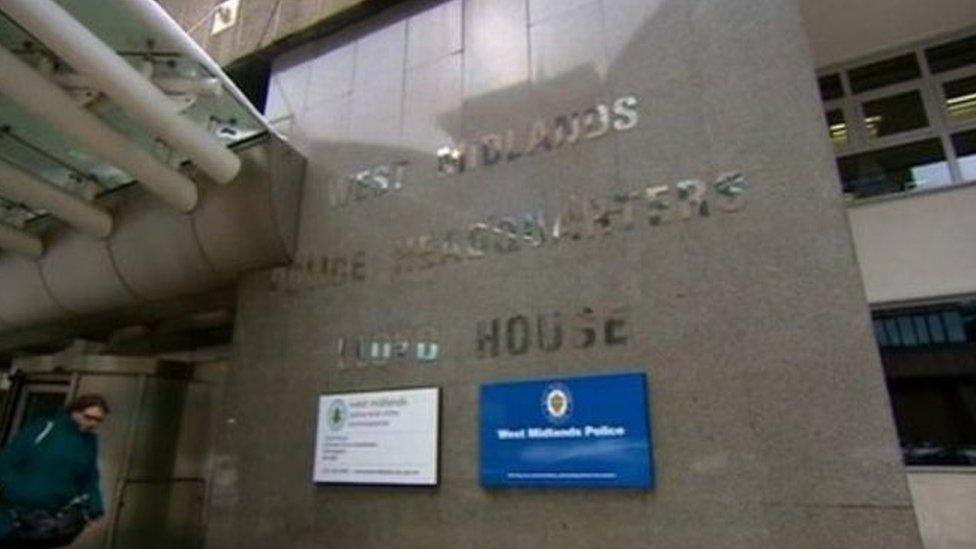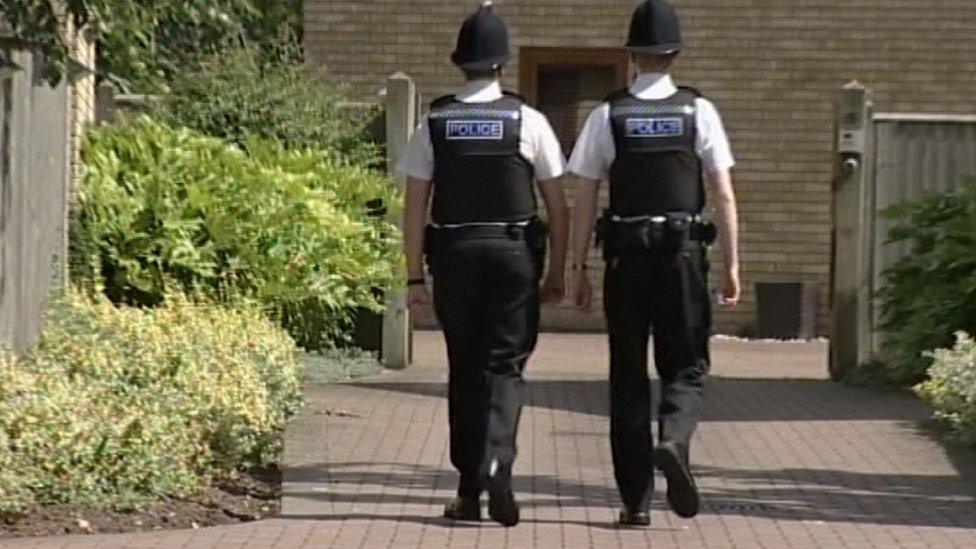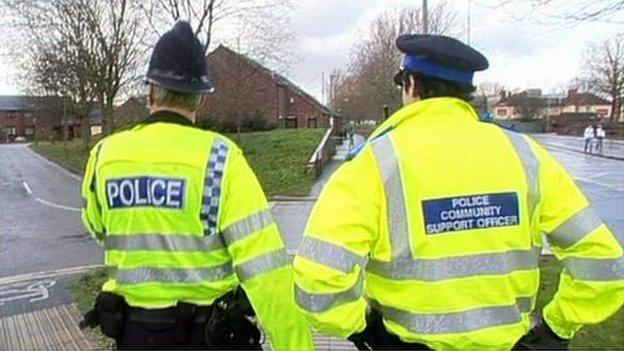Plans to cut PCSO numbers by 78% in West Midlands announced
- Published

The force said it was now entering into a formal consultation period with trade unions and staff
The number of police community support officers (PCSOs) in the West Midlands could fall by 78% by 2020 under proposals announced by police.
Plans to cut their number to 119 were "hugely regrettable but unavoidable," said West Midlands Police (WMP).
Police and Crime Commissioner David Jamieson said PCSOs would be the first expected casualty of the government's "continued attack on policing".
The Home Office said police still had sufficient resources to do their work.
Changes made by the government since 2010 have made it "easier for the police to do their job" by cutting red tape and scrapping unnecessary targets, the spokesman said.
What matters is "how officers are deployed and not how many of them there are in total", he added.
Updates on this story and more from Birmingham & the Black Country
WMP said it has 674 PCSO posts, of which 139 are currently vacant and not being advertised.
These latest plans would see their number fall from 535 to 119.
WMP said it has to make savings of £130m during the next five years, and that its "wholesale review of local policing" was part of a wider policing plan.
'Difficult choices'
It said it had faced "unprecedented cuts since 2010" and seen more than £146m shaved off its budget.
Given that wages represent more than 80% of costs, Mr Jamieson warned there was "only so much" it could do "without making difficult choices".
The scale and pace of the proposed changes are dependent on a number of factors, including the government's Comprehensive Spending Review later this month, the force said.
Deputy Chief Constable David Thompson said he remained clear that his force was "not pulling away from working closely" with its communities.
Jill Harrison, West Midlands Police Unison branch secretary, said PCSOs had been "a real success in keeping the public safe and working to reduce crime".
She warned: "Clearly the only people that are going to be happy about this are the criminals themselves."
The force said it was now entering into a formal consultation period, lasting a minimum of 45 days, with trade unions and staff.
- Published6 October 2015

- Published1 October 2015

- Published11 September 2015
